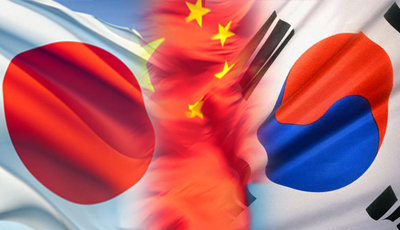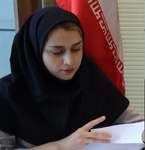South Korea, Japan, and China plan to open their first trilateral summit in three and a half years on Sunday.
President Park Geun-hye will also hold a series of bilateral talks with Japanese Prime Minister Shinzo Abe and Chinese Premier Li Kequiang on the sidelines of the event. Abe and Li are expected to meet bilaterally as well.
The upcoming session will "serve as an important chance not only for peace and stability in Northeast Asia but also for the improvement of South Korea-Japan relations," Park said in public. But it is uncertain whether an immediate breakthrough will be produced.
Among key pending issues are Abe's stance on Japan's wartime atrocities, the country's drive for expanding its military influence abroad, and tensions in the South China Sea.
Park will press Abe to clarify his view on the sexual enslavement by Japan's troops of Korean women during World War II.
Park had refused to hold a summit with Abe mainly due to his dubious view on shared history.
Many agree that the success of the first Park-Abe summit to be held next Monday will depend on the results of their discussions on the "comfort women" issue.
Although Abe said, "I would like to exchange opinions frankly (with President Park) on the issue," skepticism is widespread that he will offer a clear apology and satisfy Park.
Another thorny issue is the role of Japan's Self-Defense Forces in the event of contingencies on the Korean Peninsula. Japan recently passed new security legislation allowing it to exercise the right to collective self-defense and stage a war even if it's not directly attacked.
Japan is empowered to fight alongside the US or other partner countries if needed. South Korea stressed that Japan should obtain its prior consent for any military operation on the peninsula, in either the South or North.
Under its constitution, South Korea regards North Korea as its territory. Koreans who suffered Japan's brutal colonial rule from 1910-1945 are very sensitive to the possibility of Japanese boots on Korean soil again.
Defense Minister Han Min-koo delivered the position to his Japanese counterpart Gen Nakatani in their talks in Seoul last month. Nakatani, however, disputed Seoul's stance.
"There are some opinions that the scope of South Korea's effective control is below the truce line," he was quoted as telling Han.
His remarks apparently reflect Japan's plan to leave the door open for its military to enter North Korea at its own discretion in case of an emergency there.
Park is expected to raise the issue in her summit with Abe. Another sticking point is soaring tensions over China's creation of artificial islets for military purposes in the South China Sea, where Beijing is stuck in decades-long territorial row with its Southeast Asian neighbors.
In protest, the US dispatched a destroyer to the region. The USS Lassen sailed within waters near a reef claimed by China, drawing fierce criticism from Beijing.
Japan immediately expressed support for the US move. South Korea, a key regional ally of the US and a major trade partner with China, has taken a neutral stance, calling for a peace resolution to the stand-off.
"Protecting the freedom of navigation and flights as well as the implementation of the Declaration on the Conduct of Parties in the South China Sea (DOC) is important to peace and stability in the region," the Foreign Ministry's spokesman Noh Kwang-il said in a statement.
Abe may demand Park clarify Seoul's position on the matter in the upcoming bilateral or trilateral session.
YNA/MNA


























Your Comment